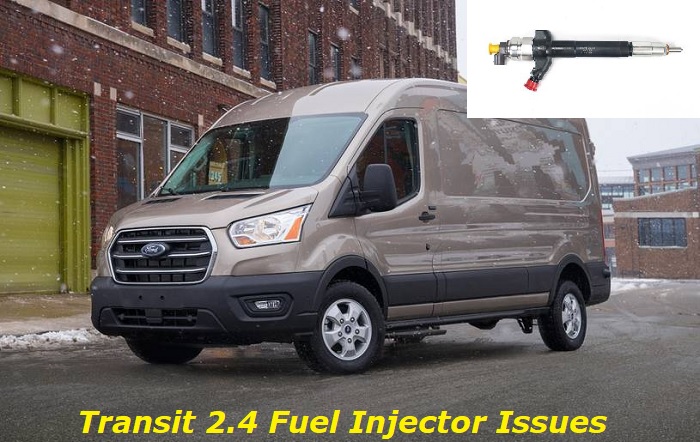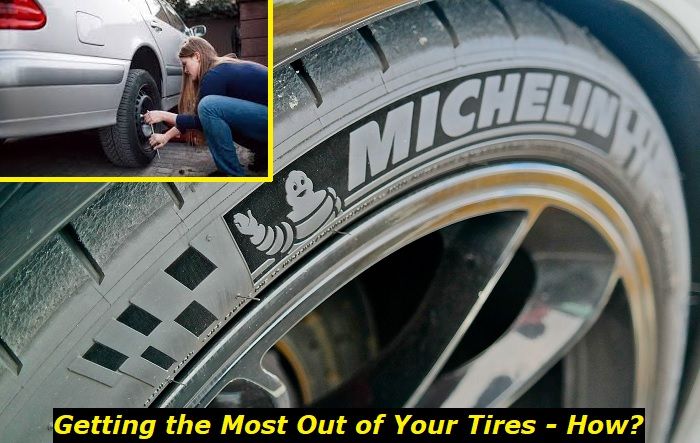The Ford Transit is one of the most popular vans on the market, and with good reason. They are great workhorses that are tough, reliable, and easy to maintain. The van has been produced over the course of several decades, but the one major issue that many owners have run into time and time again has been injector problems in the Ford Transit 2.4 L 4-cylinder engine. In this article, we'll talk about what symptoms you need to look out for.

Main Symptoms of the Issue
- Diagnosing Power Loss
A key symptom of Ford Transit 2.4 injector problems is a loss of power while driving. This can be accompanied by a decrease in fuel economy and an increase in emissions. If you notice any of these issues, it's important to take your vehicle to a mechanic as soon as possible for diagnosis and repair.
- Engine stalling
Engine stalling can be caused by a variety of issues, but one of the most common is a problem with the injectors. The Ford Transit 2.4 is particularly susceptible to this issue, as the injectors are located in a difficult spot and can easily become clogged. When this happens, it causes a loss of power and can eventually lead to the engine stalling completely.
- Fluid Leaks
The first symptom of the issue is fluid leaks. You may notice fuel, oil, or coolant leaking from the injector pump area. This is caused by a crack in the housing or an O-ring failure. If you see any fluid leaks, it's important to get your vehicle to a mechanic as soon as possible.
- Noises During Start Up, Shut Down, and Driving
You may hear a rattling sound when starting up your engine, or when driving at low speeds. The noise may also be present when shutting down your engine. If you notice any of these noises, it's important to have your vehicle checked by a qualified mechanic as soon as possible.
- Ignition System Problem
This can manifest in a few different ways, the most common of which are engine misfires, difficulty starting the engine, and a decrease in fuel economy.
- Fuel Delivery Problem
Once you have a clogged injector, fuel cannot be transported properly to the engine. One of the major problems is that fuel isn't sprayed the way it should be, so it doesn't form the needed fuel-air mixture and this causes problems with your engine work.
- Electrical System Problem
Injectors rely on electricity to work properly. If you notice that injectors are faulty, it's not always just about their mechanical part or them being clogged. Sometimes, the reason for this issue lies in electrical wiring or connectors. A sufficient check and repair will help you resolve the problem.
What can happen if you don't resolve the issues with your injector?
A lot of things could go wrong. First of all, a malfunctioning injector will pour fuel into the chamber and this fuel will not burn the way it should. Some fuel will get to the oil pan eventually and will dissolve oil gradually making it worse for the important job of oiling the engine parts.
Also, fuel consumption will go up. If your gas mileage drops, you spend more money for every mile which is inappropriate for a commercial vehicle.
One more thing, your engine may get more damage because of explosions in one of the cylinders. The bad air-fuel mixture may not be burning but exploding leading to different issues with your Ford Transit.
So, keeping the eye on Ford Transit's fuel injectors is extremely important, especially if you own the Transit with the 2.4-liter engine which is quite demanding in terms of maintenance.
About the authors
The CarAraC research team is composed of seasoned auto mechanics and automotive industry professionals, including individuals with advanced degrees and certifications in their field. Our team members boast prestigious credentials, reflecting their extensive knowledge and skills. These qualifications include: IMI: Institute of the Motor Industry, ASE-Certified Master Automobile Technicians; Coventry University, Graduate of MA in Automotive Journalism; Politecnico di Torino, Italy, MS Automotive Engineering; Ss. Cyril and Methodius University in Skopje, Mechanical University in Skopje; TOC Automotive College; DHA Suffa University, Department of Mechanical Engineering






Add comment